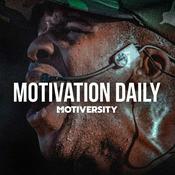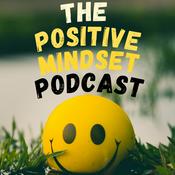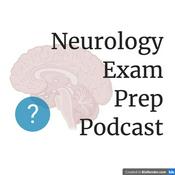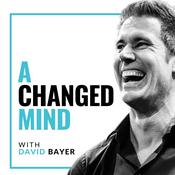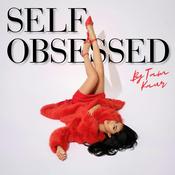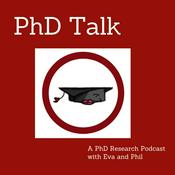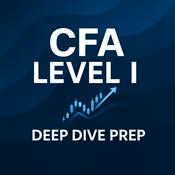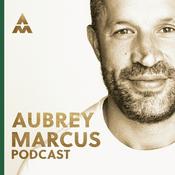413 episodes
- One of my teachers often used to say that no matter what you’re playing, when you’re on stage, the beginning of a piece is always the hardest part.
Not because the opening is more difficult technically, but because we’ve generally been sitting around for a little while, so we’re feeling kind of cold, a little disconnected from our instrument, and nervous and jittery.
And it often takes us a minute or two to get warmed up and really hit our stride. Which might not be the end of the world if you’re playing a 30-minute concerto. But if it’s an audition that only lasts a few minutes, this “warm-up” period can feel like a really long (and crappy) couple minutes.
Is there something we can do to be more accurate right from the start, and skip that “settling-in” period? (spoiler alert - yes, there is 😁).
Get all the nerdy details here:
How to Start a Performance with More Accuracy (Without the "Onstage Warm-Up")
Live mental skills class begins soon!
Learn research-based strategies for effective practice, managing nerves, getting into the zone, and performing more confidently with a month of live Zoom sessions, weekly homework, and feedback.
Registration ends January 25th.
👉 Join Performance Psych Essentials - Cohort 26 (February 1 - March 1)
References
Perry, I. S., and Katz, Y. J. (2015). Pre-performance routines, accuracy in athletic performance and self-control. Athens J. Sports 2, 137–152. doi: 10.30958/ajspo.2-3-1
More from The Bulletproof Musician
Get the free weekly newsletter, for more nerdy details and bonus subscriber-only content.
Pressure Proof: A free 7-day performance practice crash course that will help you shrink the gap between the practice room and the stage.
Learning Lab: A continuing education community where musicians and learners are putting research into practice.
Live and self-paced courses - In some years it feels easier to begin the new year with a lot of energy and enthusiasm. Other years, it can be difficult to get going and build up those new habits that we’d love to develop.
Whichever kind of year this is shaping up to be for you, I have a few things planned these next few weeks to help make it a productive one.
Today, I have a couple studies to share that look at a popular technique for getting started when your motivation isn’t quite there.
Then, Coworking Week begins Monday, where we’ll have five days of drop-in coworking calls to clear distractions, get unstuck, and check things off your list (join here).
And the week after that, I’ll be opening the doors for the Winter Psych Essentials class, where through a month of group classes and gentle peer accountability, you’ll learn how to accelerate your progress, and perform more confidently in 2026 with research-based techniques and exercises from performance science that you can apply to your daily practice (details here).
But for now, let's take a look at a strategy that could make it easier to start (and finish) tasks, whether that be practicing, studying, or doing the laundry:
When You Can’t Get Yourself to Start Practicing, Try This
References
Ara, Z., Rahim, I. B., Zhou, P., Yu, L., Esmaeili, B., Yu, L., & Hong, S. R. (2025). You are not alone: Designing body doubling for ADHD in virtual reality. arXiv (Cornell University). https://doi.org/10.48550/arxiv.2509.12153
Eagle, T., Baltaxe-Admony, L. B., & Ringland, K. E. (2024). “It Was Something I Naturally Found Worked and Heard About Later”: An Investigation of Body Doubling with Neurodivergent Participants. ACM Transactions on Accessible Computing, 17(3), 1–30. https://doi.org/10.1145/3689648
More from The Bulletproof Musician
Get the free weekly newsletter, for more nerdy details and bonus subscriber-only content.
Pressure Proof: A free 7-day performance practice crash course that will help you shrink the gap between the practice room and the stage.
Learning Lab: A continuing education community where musicians and learners are putting research into practice.
Live and self-paced courses - We all get stuck on problem passages from time to time. And it can be very natural to simply throw more repetitions at it, in hopes that this will eventually unlock something.
But in doing so, we end up accumulating more and more incorrect repetitions and reinforcing mistakes. So what’s the alternative?
A new study took a rare, close-up, repetition by repetition look at how artist-level musicians practice difficult passages. And it identified some key similarities in how they approach problems and keep making progress - without reinforcing mistakes.
The result is a concrete practice framework that any musician can use to guide their practice. You might even argue that this is THE core process that underlies effective skill learning.
Get all the nerdy details here:
The Central Strategy Expert Musicians Use to Practice Difficult Passages
References
Killion, M. F., & Duke, R. A. (2025). The central strategy of music practice: A blow-by-blow account. Journal of Expertise, 8(2–3), 85–128.
More from The Bulletproof Musician
Get the free weekly newsletter, for more nerdy details and bonus subscriber-only content.
Pressure Proof: A free 7-day performance practice crash course that will help you shrink the gap between the practice room and the stage.
Learning Lab: A continuing education community where musicians and learners are putting research into practice.
Live and self-paced courses - The voice in our head can be an asset at times - but also kind of a jerk at the worst possible moments. And like that one person in the “quiet car” of the train that doesn’t seem to understand the rules, it never seems to be quiet when we need it to.
A 2014 study identified a self-talk strategy that led to improved performances, and less post-performance shame and rumination.
And it doesn’t require us to shush the inner critic entirely (whew, because that’s really difficult!). It’s just a small, simple - yet quirky - tweak that anyone can do.
Get all the nerdy details here:
How a Small Change in Self-Talk Could Improve Performance Under Pressure
References
Kross, E., Bruehlman-Senecal, E., Park, J., Burson, A., Dougherty, A., Shablack, H., Bremner, R., Moser, J., & Ayduk, O. (2014). Self-talk as a regulatory mechanism: How you do it matters. Journal of Personality and Social Psychology, 106(2), 304–324. https://doi.org/10.1037/a0035173
More from The Bulletproof Musician
Get the free weekly newsletter, for more nerdy details and bonus subscriber-only content.
Pressure Proof: A free 7-day performance practice crash course that will help you shrink the gap between the practice room and the stage.
Learning Lab: A continuing education community where musicians and learners are putting research into practice.
Live and self-paced courses - A few months ago, when a sportswriter published an article in The New York Times about an unusual and “revolutionary” practice method that NBA star Victor Wembanyama and other elite athletes and teams (like the World Series-winning LA Dodgers) were utilizing, I started getting emails from musicians, asking if this method, known as the “constraints-led approach,” might apply to practicing music too.
So what is the constraints-led approach? And is it relevant to musicians?
Spoiler alert - yes, it totally is. 😁
And if you’ve ever been frustrated by how you can play exactly the way you want in the practice room, but find that things start to break down when you’re surrounded by other musicians, or playing in a new hall, or on a different piano, this can not only help you be more comfortable in performance, but have way more fun in your daily practice too.
Get all the nerdy details right here:
A Learning Method That Outperformed Traditional Practice
More joy in the practice room and on stage in 2026?
Get the Beyond Practicing 2-for-1 offer (ends on December 14, 2025 at 11:59pm)
More from The Bulletproof Musician
Get the free weekly newsletter, for more nerdy details and bonus subscriber-only content.
Pressure Proof: A free 7-day performance practice crash course that will help you shrink the gap between the practice room and the stage.
Learning Lab: A continuing education community where musicians and learners are putting research into practice.
Live and self-paced courses
More Education podcasts
Trending Education podcasts
About The Bulletproof Musician
Ever wonder why you can practice for hours, sound great in the practice room, and still be frustratingly hit or miss on stage? Join performance psychologist and Juilliard alumnus/faculty Noa Kageyama, and explore research-based “practice hacks” for beating anxiety, practicing more effectively, and playing up to your full abilities when it matters most.
Podcast websiteListen to The Bulletproof Musician, The Daily Stoic and many other podcasts from around the world with the radio.net app
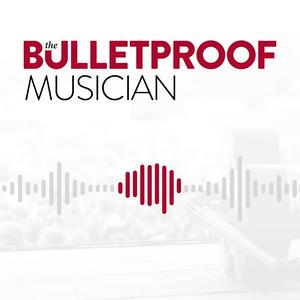
Get the free radio.net app
- Stations and podcasts to bookmark
- Stream via Wi-Fi or Bluetooth
- Supports Carplay & Android Auto
- Many other app features
Get the free radio.net app
- Stations and podcasts to bookmark
- Stream via Wi-Fi or Bluetooth
- Supports Carplay & Android Auto
- Many other app features


The Bulletproof Musician
Scan code,
download the app,
start listening.
download the app,
start listening.








